Despite the continual messages about healthy eating, retailers know that stocking up on cakes and biscuits is a sure-fire way to keep their profits sweet.
Both categories are big hitters, worth £18m and £4m respectively in the convenience market according to figures from Kantar, but they are faring differently in terms of growth. While the biscuits category is growing by 5.9% in convenience, the cake category has suffered a fall of 8.7% year on year, although in both categories private label is in growth.
According to Mintel, the cake sector's fortunes have taken a hit because the market for whole cakes is stagnating. This is, in part, because birthday cakes featuring children's film tie-ins are losing favour, but mainly because smaller household sizes mean there are fewer people to share larger cakes.
But while the public appetite may be slowing for large family cakes, it's good news for c-stores, since the trend is now for bite-size portions.
Burton's category controller Jon Sandy says: "Bite-size cakes have become increasingly popular over recent years, with consumers looking for more convenient portion-sized packs."
A look at AC Nielsen's top 10 'eat now' cakes shows mini cakes mixed with big brand confectionery are proving popular. While Soreen's Malt Slice Snack Pack is at number one, Galaxy Muffins, M&Ms Chocolate Brownies and Mars Muffins all make the list.
With smaller portion sizes firmly in mind, Premier Foods is looking to tap into lunch box munching with the release of Mr Kipling Oatibakes. Premier has identified that there are three billion lunchbox occasions, as consumers increasingly pack their own sandwiches rather than buy a more pricey lunch out.
These meal occasions are worth £5.3bn in the UK, and are growing by 5.1% year on year.
Inside the average British lunchbox, consumption of cake is growing by 12%, and helping to improve the category's fortunes for the future.
Premier Foods head of cake marketing Matt Hunt says: "We have identified an opportunity for a completely new product with great potential to grow the cake category.
"Mr Kipling Oatibakes tested very well with mums and kids, with mums indicating a strong intention to buy."
Premier is launching a major £3m TV ad spend which will include sponsorship of the ITV1 show Mr & Mrs. Consumers who remember the classic 'exceedingly good cake' commercials of the Eighties may be surprised to see that the ads feature Mr Kipling's long-suffering wife in an attempt to make the brand more relevant to modern mums.
While cake manufacturers have had to alter their products and marketing of late, biscuit manufacturers are riding high on the wave of economic uncertainty.
Nick Stuart, commercial manager at United Biscuits UK, says: "The current economic climate has meant that consumers are increasingly careful about where their money is spent, but biscuits are one of the last areas that people look to cut back on as they are seen as a relatively inexpensive treat.
"Given the fact that people are potentially more likely to stay in and treat themselves, the snacking occasion is becoming even more relevant."
Adds Rachel Moffat, brand manager at Fox's Biscuits: "Biscuits are showing strong growth, and it's the convenience sector that's leading the way in terms of sales.Biscuits will always be important to independents because they offer a tempting impulse purchase."
To cater for consumers who demand serious value for money, Stuart recommends the Crawford's range of pricemarked packs. "Available at 59p, the range enables retailers to offer their customers a selection of biscuits that provide great value for money, but do not sacrifice on quality."
While once upon a time manufacturers would have tried to tempt kids with chocolate treats, today the market for cocoa-topped biscuits is a whole lot more grown-up. Fox's is concentrating on this Grown-up Indulgence market (GUI) with the relaunch of two of its best-selling products under the Chocolatey brand.
Both Caramel Shortcake (which used to be known as Millionaire's Shortcake) and Shortcake Rounds will benefit from a more luxurious look, which aims to position the products squarely in the luxury biscuits fixture.
Moffat says GUI accounts for 8% of the sweet biscuit category and is currently worth £123m and growing at 3.4% year on year.
Burton's is also making a contribution to the chocolate biscuit category with a £4m move to turn three Cadbury's brands into biscuits. "The launch of Cadbury Caramel, Crunchie and Turkish Delight in biscuit form is set to bring genuine innovation to the category with brands that offer unrivalled consumer affection and will bring excitement and pleasure to a sector that has been characterised by line extensions," says Sandy.
Of course, like every other category, cakes and biscuits have been hit by the drive toward healthier options. Mintel reports that healthy eating trends have led consumers to limit their intake of calorie, sugar and fat-laden foods, including cakes and biscuits.
This move towards health is especially prominent in the cake sector. Mintel reports that, despite two-thirds of consumers eating cakes regularly, penetration levels and frequency of use are declining.
A glance around the average office at 3pm suggests that consumers' good intentions don't always run as far as giving up sugary foods altogether. However, manufacturers have made a concerted effort to introduce low-fat and wholemeal varieties, and to cut out artificial additives and preservatives from popular lines.
Whether this is due to increasing political and health lobby pressure about saturated fat and sugar levels in food, or a response to genuine shopper requirement for healthier cakes and biscuits can be argued at length, but manufacturers have certainly prioritised creating healthier versions of the nation's favourite brands.
In November 2009, United Biscuits announced the second reduction of the saturated fat content in three of its McVitie's biscuit brands: Digestives, HobNobs and Rich Tea. All three lines now have 50% less saturated fat.
United Biscuits highlights the fact that these products are free from artificial colours and flavours and points out that they are a source of fibre.
Stuart comments: "With a total value of more than £33m in impulse and growing, it is clear that healthier biscuits are providing great results for independent retailers.
"Independents that don't stock the right mix of healthy products will see their business suffer as consumers go elsewhere to get what they want.
Stuart points out that while historically women have been seen to be the main purchasers of healthier alternatives, United Biscuits is witnessing strong growth among men, and retailers should be stocking products that cater for them accordingly.
In the cake category, consumers seeking a low-fat option have often plumped for Jaffa Cakes. To re-invigorate the brand, a new Jaffa Cake Lemon Bar launched in March, adding a lemony twist to the original mix of dark chocolate and sponge. The limited-edition flavour follows the popularity of other variants added to the core jaffa cake range.
McVitie's Cake Company marketing controller Mike Benton says: "The range is worth £41m and is popular with all ages and boasts a very loyal following. Consumers enjoy the variation that limited editions bring."
Whether it's down to Nigella Lawson and her passion for promoting decadent cakes, or Cath Kidson's designer take on 1950s domesticity, one thing's for sure home baking is now what the fashion press like to call 'on trend'. In fact, these days it's difficult to open a women's magazine without seeing a photo spread featuring a model in a vintage frock presenting her friends with a tray of perfect cupcakes and a pot of tea.
Market analysts explain the home-baking trend in terms of the rise in consumers cooking from scratch. "Our latest shopper research shows that the number of people cooking from scratch is increasing," says IGD senior consumer analyst Michael Freedman. "People cooking from scratch using raw ingredients or a combination of raw and prepared ingredients during weekdays has increased to four in five (79%) of shoppers, compared with 75% in 2007."
IGD believes a number of factors are influencing this trend, including smaller household sizes resulting in fewer people to cook for, and the fact that shoppers are seeking value for their purchases. "Baking does provide a relatively inexpensive way to treat during the recession," Freedman says.
He points out that the rise of food-related media, such as foodie magazines, books and websites, also means that consumers have better access to home-baking recipes than ever before.
As happy 1950s-style housewives (or more likely busy modern men and women) increasingly invest in baking trays and the like, business in home baking is booming. According to IRI the total home baking sector is worth £94m (up 22.6% year on year).
Key growth categories are baking aids (up 27.8% in value year on year), colours and flavours (up 38% in value year on year), edible decorations (up 26.9% in value year on year) and non-edible decorations.
Finishings and cake mixes are central to home-baking sales volume and are also the fastest growing home-baking areas or convenience stores, up 23.9% and 9.8% respectively, according to Kantar Worldpanel.
Home-baking consumers (especially 45-74 ABC 1 females) are increasingly shopping in c-stores, too, which should mean maximum till-ring for retailers who stock the right ingredients.
So how can the average c-store make the most of this growing category? "It is hard for convenience stores to cover all ranges and predict what might be needed," admits Freedman. "One solution could be to provide 'solutions' stocking all ingredients for a specific recipe around a seasonal theme."
Dr Oetker's range of home-baking ingredients has been designed with convenience retailers firmly in mind. Marketing manager Gill Davies says: "Our lines are home-baking staples, essential for basic recipes where consumers may have run out and need to 'pop to the shop'.
"As well as covering essential requirements, Dr Oetker lines provide inspiration for those visits to the shop on a rainy day when parents are looking for an activity to do with the kids. Our core lines include baking powder, bicarbonate of soda and baking cases."
Dr Oetker also offers cupcake-friendly mini marshmallows in a clip strip for stores with limited space available but who want to make the most of the potential for impulse purchases.
"Allowing the correct proportion of shelf space for each category within home baking is important," recommends Davies. "An equal split of space should be allocated for the following sectors: flour, baking fruits, canned fruits and nuts, cake mixes and desserts, decorations and chocolate, ingredients and non-edible decorations."
So what does the future hold for the cake and biscuit category? Sandy believes that it's important to introduce younger consumers to the category in order to see it move forward.
"On-the-go snacking will continue to be key for the convenience sector, and will drive product development in the biscuit category," he says.
"These developments will take the form of new pack or product formats that capitalise on different need states, offering new portion sizes and ways to consume treats on the go. This will unlock the biscuit category for the next generation a target demographic of young families and teenagers, one in three of which admit to often buying new products on impulse when seeing them in a shop."
The analysts at Mintel predict that the gulf between healthy and indulgent products will grow further as consumers are left torn between their wants and their waistlines.
Fox's Biscuits' Moffat reckons that as long as the market meets both needs, everyone will be satisfied. "People are interested in their health, but they'll always be a desire for them to treat themselves. It's all about giving them that choice," she says.
Both categories are big hitters, worth £18m and £4m respectively in the convenience market according to figures from Kantar, but they are faring differently in terms of growth. While the biscuits category is growing by 5.9% in convenience, the cake category has suffered a fall of 8.7% year on year, although in both categories private label is in growth.
According to Mintel, the cake sector's fortunes have taken a hit because the market for whole cakes is stagnating. This is, in part, because birthday cakes featuring children's film tie-ins are losing favour, but mainly because smaller household sizes mean there are fewer people to share larger cakes.
But while the public appetite may be slowing for large family cakes, it's good news for c-stores, since the trend is now for bite-size portions.
Burton's category controller Jon Sandy says: "Bite-size cakes have become increasingly popular over recent years, with consumers looking for more convenient portion-sized packs."
A look at AC Nielsen's top 10 'eat now' cakes shows mini cakes mixed with big brand confectionery are proving popular. While Soreen's Malt Slice Snack Pack is at number one, Galaxy Muffins, M&Ms Chocolate Brownies and Mars Muffins all make the list.
With smaller portion sizes firmly in mind, Premier Foods is looking to tap into lunch box munching with the release of Mr Kipling Oatibakes. Premier has identified that there are three billion lunchbox occasions, as consumers increasingly pack their own sandwiches rather than buy a more pricey lunch out.
These meal occasions are worth £5.3bn in the UK, and are growing by 5.1% year on year.
Inside the average British lunchbox, consumption of cake is growing by 12%, and helping to improve the category's fortunes for the future.
Premier Foods head of cake marketing Matt Hunt says: "We have identified an opportunity for a completely new product with great potential to grow the cake category.
"Mr Kipling Oatibakes tested very well with mums and kids, with mums indicating a strong intention to buy."
Premier is launching a major £3m TV ad spend which will include sponsorship of the ITV1 show Mr & Mrs. Consumers who remember the classic 'exceedingly good cake' commercials of the Eighties may be surprised to see that the ads feature Mr Kipling's long-suffering wife in an attempt to make the brand more relevant to modern mums.
While cake manufacturers have had to alter their products and marketing of late, biscuit manufacturers are riding high on the wave of economic uncertainty.
Nick Stuart, commercial manager at United Biscuits UK, says: "The current economic climate has meant that consumers are increasingly careful about where their money is spent, but biscuits are one of the last areas that people look to cut back on as they are seen as a relatively inexpensive treat.
"Given the fact that people are potentially more likely to stay in and treat themselves, the snacking occasion is becoming even more relevant."
Adds Rachel Moffat, brand manager at Fox's Biscuits: "Biscuits are showing strong growth, and it's the convenience sector that's leading the way in terms of sales.Biscuits will always be important to independents because they offer a tempting impulse purchase."
To cater for consumers who demand serious value for money, Stuart recommends the Crawford's range of pricemarked packs. "Available at 59p, the range enables retailers to offer their customers a selection of biscuits that provide great value for money, but do not sacrifice on quality."
While once upon a time manufacturers would have tried to tempt kids with chocolate treats, today the market for cocoa-topped biscuits is a whole lot more grown-up. Fox's is concentrating on this Grown-up Indulgence market (GUI) with the relaunch of two of its best-selling products under the Chocolatey brand.
Both Caramel Shortcake (which used to be known as Millionaire's Shortcake) and Shortcake Rounds will benefit from a more luxurious look, which aims to position the products squarely in the luxury biscuits fixture.
Moffat says GUI accounts for 8% of the sweet biscuit category and is currently worth £123m and growing at 3.4% year on year.
Burton's is also making a contribution to the chocolate biscuit category with a £4m move to turn three Cadbury's brands into biscuits. "The launch of Cadbury Caramel, Crunchie and Turkish Delight in biscuit form is set to bring genuine innovation to the category with brands that offer unrivalled consumer affection and will bring excitement and pleasure to a sector that has been characterised by line extensions," says Sandy.
Of course, like every other category, cakes and biscuits have been hit by the drive toward healthier options. Mintel reports that healthy eating trends have led consumers to limit their intake of calorie, sugar and fat-laden foods, including cakes and biscuits.
This move towards health is especially prominent in the cake sector. Mintel reports that, despite two-thirds of consumers eating cakes regularly, penetration levels and frequency of use are declining.
A glance around the average office at 3pm suggests that consumers' good intentions don't always run as far as giving up sugary foods altogether. However, manufacturers have made a concerted effort to introduce low-fat and wholemeal varieties, and to cut out artificial additives and preservatives from popular lines.
Whether this is due to increasing political and health lobby pressure about saturated fat and sugar levels in food, or a response to genuine shopper requirement for healthier cakes and biscuits can be argued at length, but manufacturers have certainly prioritised creating healthier versions of the nation's favourite brands.
In November 2009, United Biscuits announced the second reduction of the saturated fat content in three of its McVitie's biscuit brands: Digestives, HobNobs and Rich Tea. All three lines now have 50% less saturated fat.
United Biscuits highlights the fact that these products are free from artificial colours and flavours and points out that they are a source of fibre.
Stuart comments: "With a total value of more than £33m in impulse and growing, it is clear that healthier biscuits are providing great results for independent retailers.
"Independents that don't stock the right mix of healthy products will see their business suffer as consumers go elsewhere to get what they want.
Stuart points out that while historically women have been seen to be the main purchasers of healthier alternatives, United Biscuits is witnessing strong growth among men, and retailers should be stocking products that cater for them accordingly.
In the cake category, consumers seeking a low-fat option have often plumped for Jaffa Cakes. To re-invigorate the brand, a new Jaffa Cake Lemon Bar launched in March, adding a lemony twist to the original mix of dark chocolate and sponge. The limited-edition flavour follows the popularity of other variants added to the core jaffa cake range.
McVitie's Cake Company marketing controller Mike Benton says: "The range is worth £41m and is popular with all ages and boasts a very loyal following. Consumers enjoy the variation that limited editions bring."
Whether it's down to Nigella Lawson and her passion for promoting decadent cakes, or Cath Kidson's designer take on 1950s domesticity, one thing's for sure home baking is now what the fashion press like to call 'on trend'. In fact, these days it's difficult to open a women's magazine without seeing a photo spread featuring a model in a vintage frock presenting her friends with a tray of perfect cupcakes and a pot of tea.
Market analysts explain the home-baking trend in terms of the rise in consumers cooking from scratch. "Our latest shopper research shows that the number of people cooking from scratch is increasing," says IGD senior consumer analyst Michael Freedman. "People cooking from scratch using raw ingredients or a combination of raw and prepared ingredients during weekdays has increased to four in five (79%) of shoppers, compared with 75% in 2007."
IGD believes a number of factors are influencing this trend, including smaller household sizes resulting in fewer people to cook for, and the fact that shoppers are seeking value for their purchases. "Baking does provide a relatively inexpensive way to treat during the recession," Freedman says.
He points out that the rise of food-related media, such as foodie magazines, books and websites, also means that consumers have better access to home-baking recipes than ever before.
As happy 1950s-style housewives (or more likely busy modern men and women) increasingly invest in baking trays and the like, business in home baking is booming. According to IRI the total home baking sector is worth £94m (up 22.6% year on year).
Key growth categories are baking aids (up 27.8% in value year on year), colours and flavours (up 38% in value year on year), edible decorations (up 26.9% in value year on year) and non-edible decorations.
Finishings and cake mixes are central to home-baking sales volume and are also the fastest growing home-baking areas or convenience stores, up 23.9% and 9.8% respectively, according to Kantar Worldpanel.
Home-baking consumers (especially 45-74 ABC 1 females) are increasingly shopping in c-stores, too, which should mean maximum till-ring for retailers who stock the right ingredients.
So how can the average c-store make the most of this growing category? "It is hard for convenience stores to cover all ranges and predict what might be needed," admits Freedman. "One solution could be to provide 'solutions' stocking all ingredients for a specific recipe around a seasonal theme."
Dr Oetker's range of home-baking ingredients has been designed with convenience retailers firmly in mind. Marketing manager Gill Davies says: "Our lines are home-baking staples, essential for basic recipes where consumers may have run out and need to 'pop to the shop'.
"As well as covering essential requirements, Dr Oetker lines provide inspiration for those visits to the shop on a rainy day when parents are looking for an activity to do with the kids. Our core lines include baking powder, bicarbonate of soda and baking cases."
Dr Oetker also offers cupcake-friendly mini marshmallows in a clip strip for stores with limited space available but who want to make the most of the potential for impulse purchases.
"Allowing the correct proportion of shelf space for each category within home baking is important," recommends Davies. "An equal split of space should be allocated for the following sectors: flour, baking fruits, canned fruits and nuts, cake mixes and desserts, decorations and chocolate, ingredients and non-edible decorations."
So what does the future hold for the cake and biscuit category? Sandy believes that it's important to introduce younger consumers to the category in order to see it move forward.
"On-the-go snacking will continue to be key for the convenience sector, and will drive product development in the biscuit category," he says.
"These developments will take the form of new pack or product formats that capitalise on different need states, offering new portion sizes and ways to consume treats on the go. This will unlock the biscuit category for the next generation a target demographic of young families and teenagers, one in three of which admit to often buying new products on impulse when seeing them in a shop."
The analysts at Mintel predict that the gulf between healthy and indulgent products will grow further as consumers are left torn between their wants and their waistlines.
Fox's Biscuits' Moffat reckons that as long as the market meets both needs, everyone will be satisfied. "People are interested in their health, but they'll always be a desire for them to treat themselves. It's all about giving them that choice," she says.
C-store sector’s top 10
1Mr Kipling Slices 2Cadbury Small Swiss Roll 3Mr Kipling Small Cakes 4McVitie's Large Whole Cakes 5Mr Kipling Small Pies 6Thorntons Small Cakes 7McVitie's Cake Bars 8Cadbury Small Cakes 9Warburton's Malt Fruit Loaves 10Lancashire Small Cakes Source: Kantar Worldpanel
1Mr Kipling Slices 2Cadbury Small Swiss Roll 3Mr Kipling Small Cakes 4McVitie's Large Whole Cakes 5Mr Kipling Small Pies 6Thorntons Small Cakes 7McVitie's Cake Bars 8Cadbury Small Cakes 9Warburton's Malt Fruit Loaves 10Lancashire Small Cakes Source: Kantar Worldpanel
Biscuits for breakfast
Fewer of us eat a proper breakfast every day and food manufacturers have managed to cash in on this by offering breakfast bars to consumers who don't have the time to sit down with a traditional round of toast or a bowl of cereal. Now Kraft Foods is trying to reposition biscuits for the breakfast market with the launch of Belvita Breakfast. Kraft says that the new product is the first biscuit specifically designed for breakfast. Since they are a source of fibre and contain vitamins, they tick the traditional health boxes associated with this sector. They are also designed to release carbohydrates gradually to keep the mid-morning munchies at bay. "Belvita Breakfast is perfect for those busy mornings," says Jos McNulty, director of biscuits at Kraft Food UK and Ireland. "This is a new concept designed to revolutionise the biscuit category. It's an exciting opportunity to take the biscuit category into the next decade." Meanwhile, a name usually associated with breakfast is looking to drive the success of its products with a new on-pack promotion. Kellogg's is seeking to boost sales of Rice Krispies Squares by offering shoppers the opportunity to win 10 holidays, along with 100,000 45p money-off coupons redeemable against future purchase of the product. The promotion will be backed by a £5m marketing campaign focusing on TV, digital and outdoor advertising. The single bars are now worth £12.1m and Kellogg's is urging retailers to think of the products as part of their confectionery offer. Kellogg's sales director Mike Taylor says: "Consumers see Rice Krispies Squares as a lighter confectionery product and not as a cereal bar. When it is stocked with other confectionery brands the results speak for themselves."
Fewer of us eat a proper breakfast every day and food manufacturers have managed to cash in on this by offering breakfast bars to consumers who don't have the time to sit down with a traditional round of toast or a bowl of cereal. Now Kraft Foods is trying to reposition biscuits for the breakfast market with the launch of Belvita Breakfast. Kraft says that the new product is the first biscuit specifically designed for breakfast. Since they are a source of fibre and contain vitamins, they tick the traditional health boxes associated with this sector. They are also designed to release carbohydrates gradually to keep the mid-morning munchies at bay. "Belvita Breakfast is perfect for those busy mornings," says Jos McNulty, director of biscuits at Kraft Food UK and Ireland. "This is a new concept designed to revolutionise the biscuit category. It's an exciting opportunity to take the biscuit category into the next decade." Meanwhile, a name usually associated with breakfast is looking to drive the success of its products with a new on-pack promotion. Kellogg's is seeking to boost sales of Rice Krispies Squares by offering shoppers the opportunity to win 10 holidays, along with 100,000 45p money-off coupons redeemable against future purchase of the product. The promotion will be backed by a £5m marketing campaign focusing on TV, digital and outdoor advertising. The single bars are now worth £12.1m and Kellogg's is urging retailers to think of the products as part of their confectionery offer. Kellogg's sales director Mike Taylor says: "Consumers see Rice Krispies Squares as a lighter confectionery product and not as a cereal bar. When it is stocked with other confectionery brands the results speak for themselves."
retailer opinion
"Sales of biscuits hold their own in the store, but they're not as popular as they once were. We give them two-and-a-half to three metres of shelf space, but we're looking at taking it down to two metres. Some brands aren't selling as well and we're looking at rationalising the selection down to the top sellers. At the moment own-label is doing better than the brands, just because of the price difference, and I think the recession has definitely played a part. It could change as consumer confidence grows. "Cakes aren't doing badly for us. We split our range between the premium brands, such as Mr Kipling and McVitie's, and a locally sourced selection. We also sell our own homemade bread pudding, which absolutely flies out of the door. "For cakes and biscuits pricemarking does well, even though sometimes pricemarked packs actually cost more then the standard price. Like everything, you've got to understand your local demographic. If you get your standards and customer service right then you can sell just about anything." Harry Goraya, Rosherville Post Office, Gravesend, Kent
"Sales of biscuits hold their own in the store, but they're not as popular as they once were. We give them two-and-a-half to three metres of shelf space, but we're looking at taking it down to two metres. Some brands aren't selling as well and we're looking at rationalising the selection down to the top sellers. At the moment own-label is doing better than the brands, just because of the price difference, and I think the recession has definitely played a part. It could change as consumer confidence grows. "Cakes aren't doing badly for us. We split our range between the premium brands, such as Mr Kipling and McVitie's, and a locally sourced selection. We also sell our own homemade bread pudding, which absolutely flies out of the door. "For cakes and biscuits pricemarking does well, even though sometimes pricemarked packs actually cost more then the standard price. Like everything, you've got to understand your local demographic. If you get your standards and customer service right then you can sell just about anything." Harry Goraya, Rosherville Post Office, Gravesend, Kent
top tips
Back the winners. Stock a consistent range of top sellers and remove slow-selling lines that take up money and space. Remember that 80% of sales come from 20% of products, so allocate the fixture space appropriately Signpost your offer. Use the big brands to attract shoppers to the fixture and ensure all segments are represented, such as healthier products Pick pricemarked packs to offer value for money. Where possible, sell pricemarked packs as they outsell standard packs by nearly 30% Keep your lines fresh. Make room for new product developments on your shelves, which refreshes the category and drives incremental sales Source: United Biscuits UK
Back the winners. Stock a consistent range of top sellers and remove slow-selling lines that take up money and space. Remember that 80% of sales come from 20% of products, so allocate the fixture space appropriately Signpost your offer. Use the big brands to attract shoppers to the fixture and ensure all segments are represented, such as healthier products Pick pricemarked packs to offer value for money. Where possible, sell pricemarked packs as they outsell standard packs by nearly 30% Keep your lines fresh. Make room for new product developments on your shelves, which refreshes the category and drives incremental sales Source: United Biscuits UK
ones to watch...
The better half Premier Foods is looking to create a buzz around new Oatibakes by introducing viewers to Mr Kipling's missus in its new ad campaign. The cakes come in strawberry, blackcurrant and caramel flavours. rrp: £1.29 tel: 01727 815850 Dark blue Blue Riband looked to the dark side in January this year with the launch of Blue Riband Dark. Manufacturer Nestlé hopes that the dark chocolate variant will tap into the trend for dark chocolate. rrp: £1.29 tel: 01904 604 604 Rich pickings Fox's Biscuits has dropped the 'millionaire' tag from its Caramel Shortcake line, but that hasn't stopped it being a hit with sweet-toothed shoppers who are seeking something rich to snack on. rrp: £1.39 tel: 0800 591886 P-p-p preserving Penguin will be the first chocolate biscuit to create a boost for wildlife, with new wrappers offering the opportunity for eco-conscious shoppers to win a WWF penguin adoption pack. rrp: £1.61 for six-pack tel: 0800 138 0813 American tastes Once a biscuit reserved for US snackers, Oreo has notched up £17m-worth of retail sales in the UK. One in five households bought the biscuit in its first year on shelves on this side of the pond, the company says. rrp: 85p tel: 01242 236 101
The better half Premier Foods is looking to create a buzz around new Oatibakes by introducing viewers to Mr Kipling's missus in its new ad campaign. The cakes come in strawberry, blackcurrant and caramel flavours. rrp: £1.29 tel: 01727 815850 Dark blue Blue Riband looked to the dark side in January this year with the launch of Blue Riband Dark. Manufacturer Nestlé hopes that the dark chocolate variant will tap into the trend for dark chocolate. rrp: £1.29 tel: 01904 604 604 Rich pickings Fox's Biscuits has dropped the 'millionaire' tag from its Caramel Shortcake line, but that hasn't stopped it being a hit with sweet-toothed shoppers who are seeking something rich to snack on. rrp: £1.39 tel: 0800 591886 P-p-p preserving Penguin will be the first chocolate biscuit to create a boost for wildlife, with new wrappers offering the opportunity for eco-conscious shoppers to win a WWF penguin adoption pack. rrp: £1.61 for six-pack tel: 0800 138 0813 American tastes Once a biscuit reserved for US snackers, Oreo has notched up £17m-worth of retail sales in the UK. One in five households bought the biscuit in its first year on shelves on this side of the pond, the company says. rrp: 85p tel: 01242 236 101








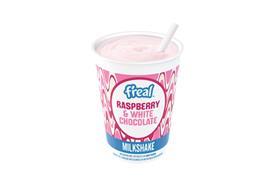












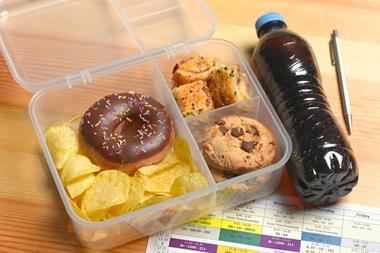
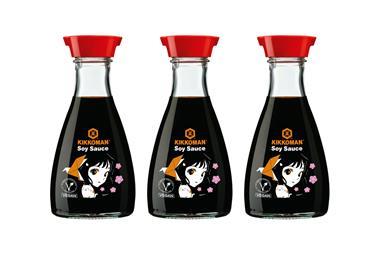
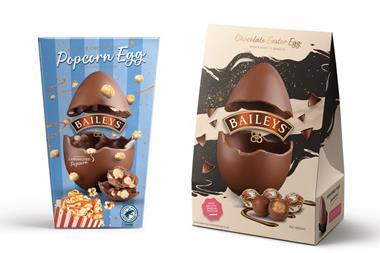
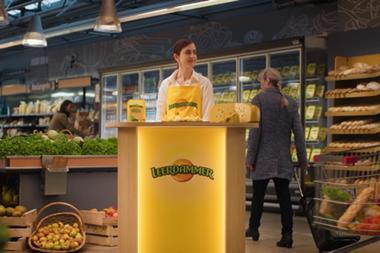
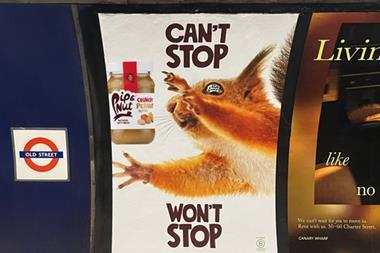
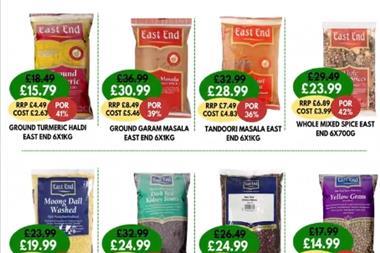




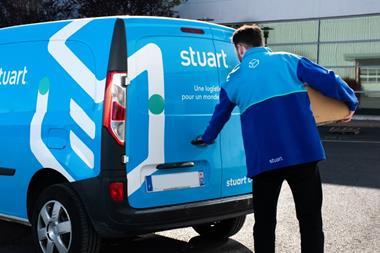
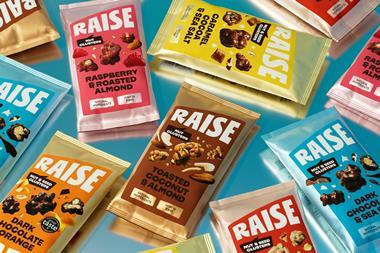
No comments yet